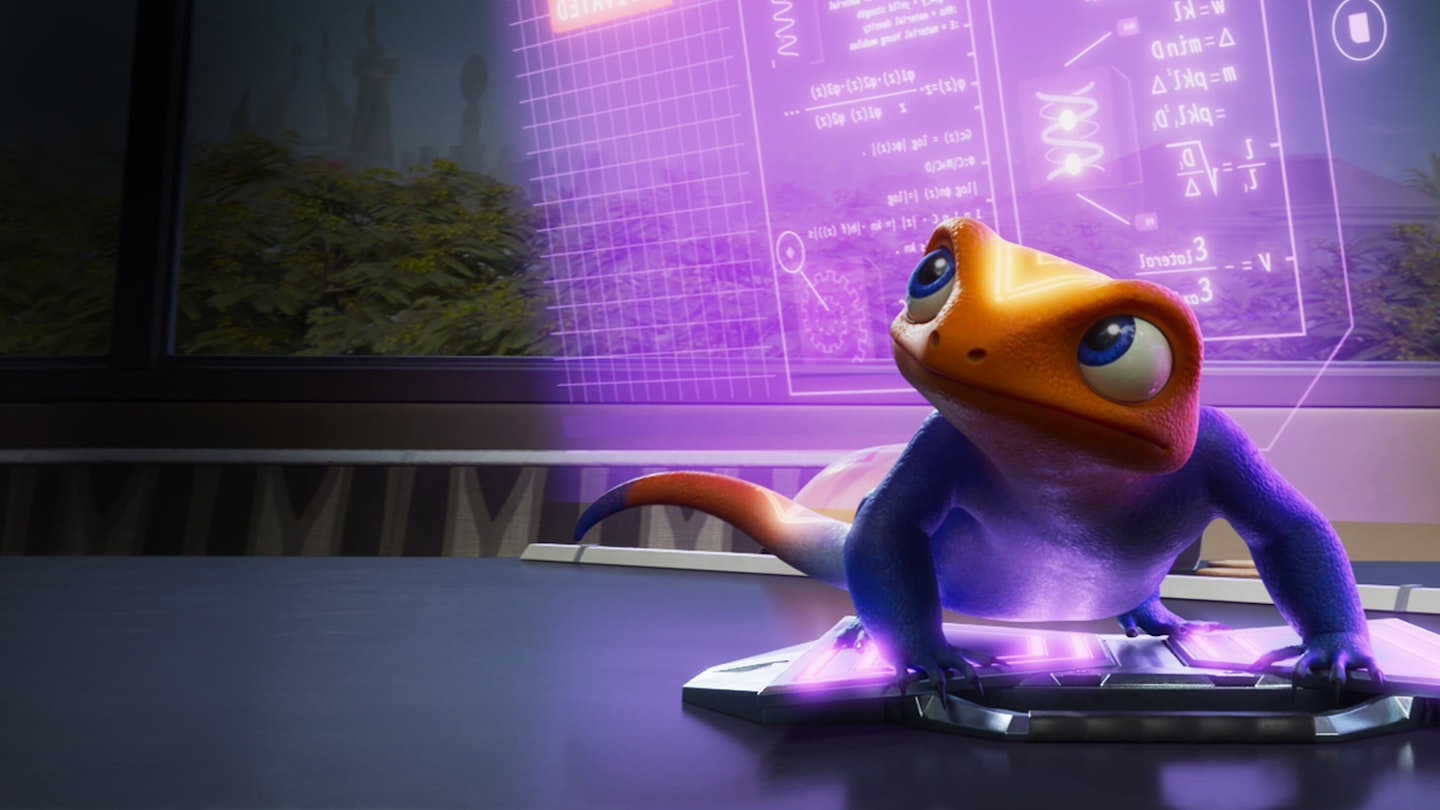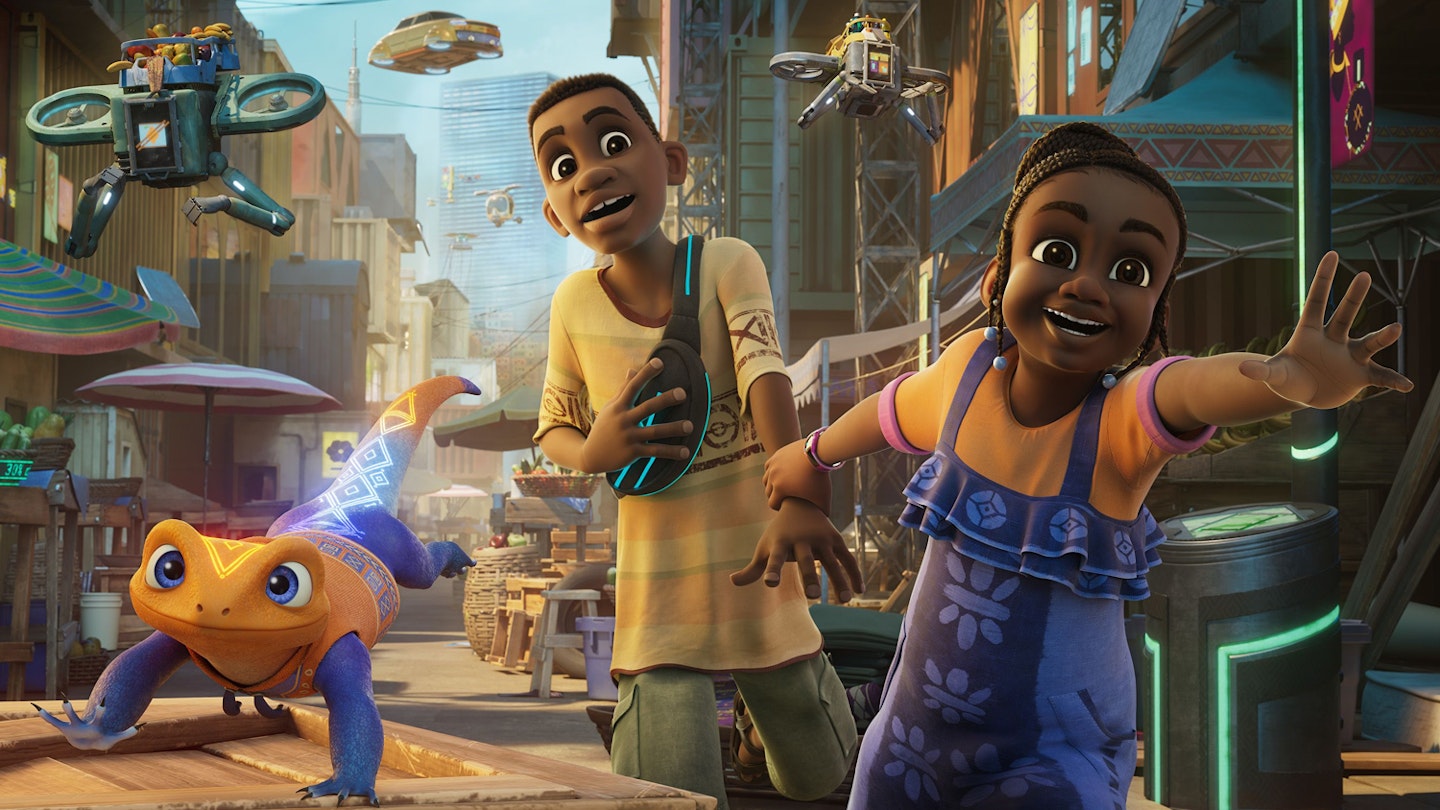Streaming on: Disney+
Episodes viewed: 6 of 6
Exploring a sci-fi version of Lagos, Iwájú is set in a landscape transformed by technology — but the frictions of society have been exacerbated. This is most evident in its quite literal division: the rich have moved to an island, their affluence on full display, in a cityscape seemingly designed by futurist concept artist Syd Mead. Everyone else lives on the mainland, making do with what they’ve got.

The series follows the story of precocious young girl and island resident Tola (voiced by Simisola Gbadamosi), learning responsibility — and class consciousness — as she befriends the less well-off Kole (Siji Soetan). Complicating matters is a series of kidnappings in the city, orchestrated by Bode (Femi Branch), a gangster in its poorer half.
Written and directed by Olufikayo Adeola with co-writer Halima Hudson, the series is notable as the first original long-form television series from Walt Disney Animation Studios — but more significantly, it is also a co-production with the pan-African comic book company Kugali. Adeola embraces cultural specificity: most of the screenplay is in Nigerian Pidgin English, with phrases from the Yoruba language peppered throughout, in a delightfully naturalistic approach to dialogue, sold by a strong voice cast. That also becomes part of the show’s story, and how it explores the wealth gap: the poorer side of Lagos (referred to in one scene as the “real Lagos”) speaks in creole, while the rich and corporate side refuse it. Coupled with a story that wilfully takes on heady thematic material, Iwájú makes for pretty bold children’s television.
Characterised by bright art direction and costume design, which enlivens its rather modest 3D animation.
Though the show is set in a future Nigeria, a lot of things remain from our time. Some of that familiarity is charming: even in a Lagos with flying cars, there are still hawkers at the windows — only these ones are digital faces on robot drones. Elsewhere, it is a little more provocative: an overhead shot of the city emphasises the difference between the shiny new techno-utopia reserved for the islanders, and the power cuts and rudimentary tech left for the mainlanders. As well as the typical Afrofuturist technologies, the show also imagines how the tech of today might evolve or be abused: blockchain currency and artificial intelligence emerge at one point, as part of a criminal enterprise.
While this doesn’t have the same explosive inventiveness of Disney’s Kizazi Moto anthology project, it’s characterised by bright art direction and costume design, which enlivens its rather modest 3D animation (produced by London studio Cinesite). The mix of photorealistic textures (the hair looks really good) and rubbery 3D character models doesn’t always feel like a natural fit, but that’s offset by thoughtful cinematography and an energetic approach to split-screen.
Some generic elements are more noticeable, though. The score sounds like temporary music, for one. And while the dialogue moves with elegance and good humour, the narrative stutters, with pacing that feels shackled to the binge model, favouring one long story over more episodic one-offs. This may be a choice made more for practical reasons than anything else, but early chapters are a little slow. For all the talk of it being Disney Animation’s first original animated series, Iwájú often feels like a feature film that’s been unceremoniously divided into slices.
Lopsided structure aside, the show is thoughtful: an Afrofuturist coming-of-age story about prosperity. Early on, Kole tells Tola, quite frankly, “The privileged only see beauty, but they don’t see what it takes to make it possible.” Iwájú will no doubt strike a chord with diasporic families; the way it handles mature themes without patronising is just as impressive.
